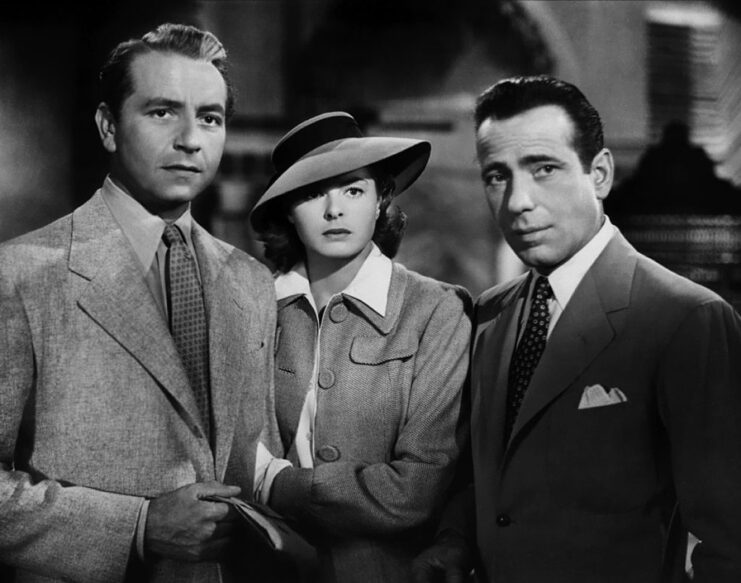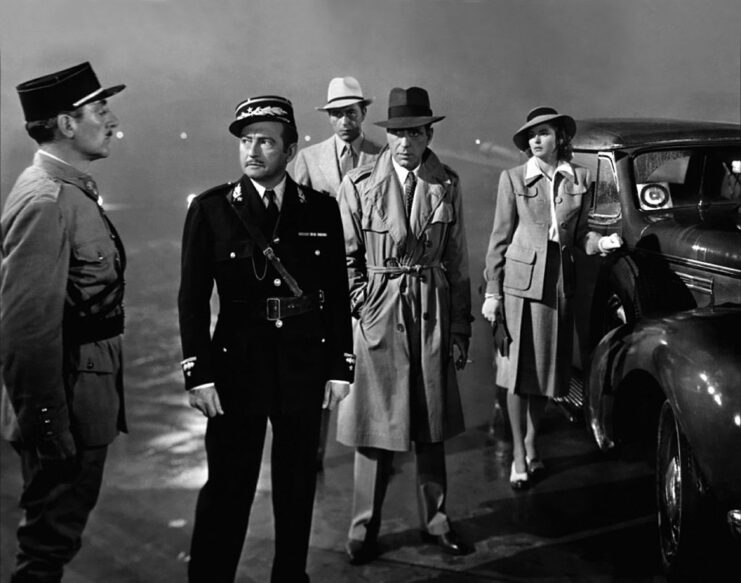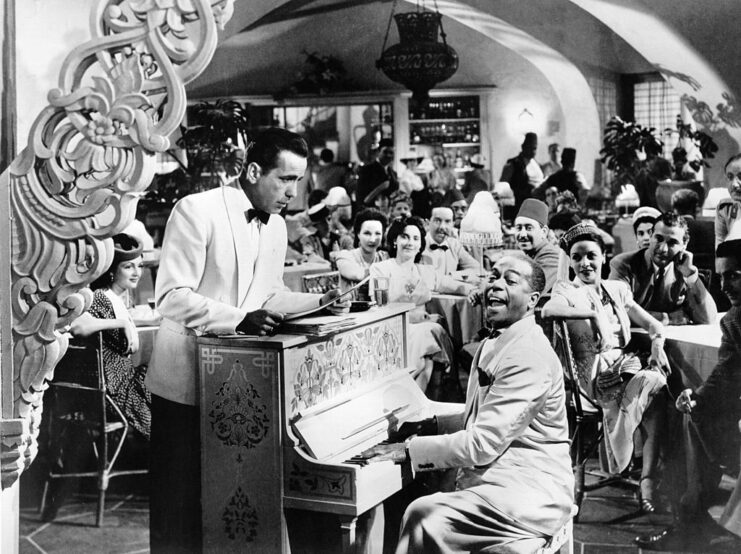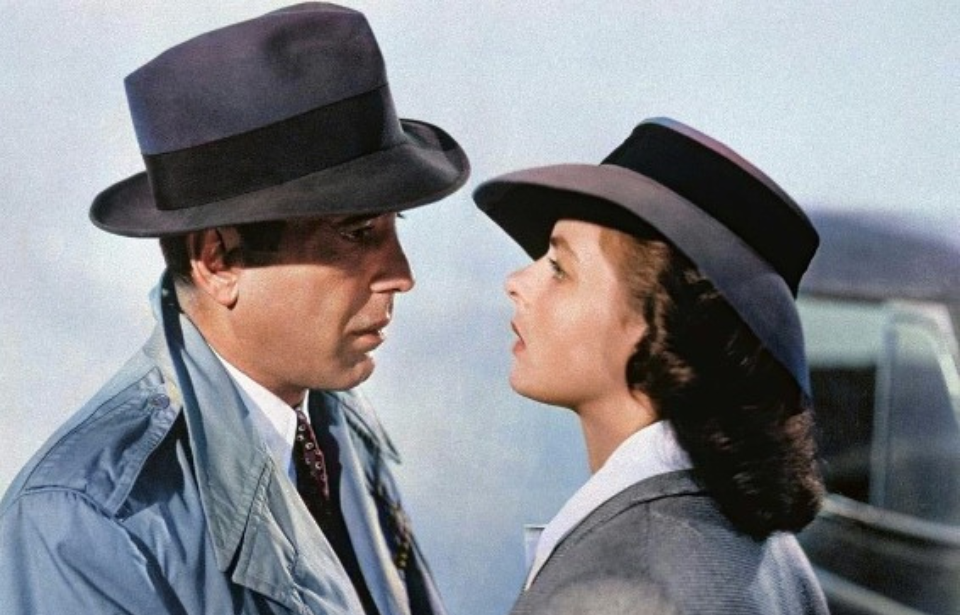Casablanca (1942), a cinematic masterpiece cherished by audiences worldwide, experienced a peculiar fate within the borders of Germany. Despite its popularity, this iconic film found itself banned following its release. Discover why it was kept from screens throughout the country – and, surprisingly, Ireland – and why it wasn’t until the 1970s that citizens were finally allowed to watch an unaltered version of the classic movie.
Casablanca (1942)

Casablanca is generally considered to be one of the greatest films of all time. Set in Morocco during the Second World War, it centers around Rick Blaine (Humphrey Bogart), resistance leader Victor Laszlo (Paul Henreid) and his wife, Ilsa Lund (Ingrid Bergman).
Blaine owns a nightclub and casino, and the arrival of Laszlo and Lund throws his life into turmoil. It’s revealed that Blaine and Lund had an affair in Paris prior to the war, but Lund left without explanation. Now, she needs his help to secure Laszlo’s escape to the United States. He initially refuses to assist them, due to his bitterness, but as the danger escalates and the stakes rise, his love for Lund resurfaces.
Meanwhile, German authorities are hot on Laszlo’s trail, as he’s a key figure in the resistance movement. Lund is torn between her loyalty to her husband and her unresolved feelings for Blaine. Ultimately, the latter must make a life-altering decision to determine the fate of those he loves and his future in the war-torn world.
Casablanca was banned in Germany… And Ireland

The main reason why Casablanca was banned in Germany was because it was set during World War II and released while the conflict was ongoing. It should come as no surprise, then, that a film produced by an Allied country portrayed that side in a positive light, while negatively showing the enemy. Supposedly, Bogart’s character was neutral in the war, but he actually worked against the Germans. All of this combined meant Casablanca was a no-go in Germany.
Shockingly, the film was also banned in Ireland. It was a neutral country, but conscious of how its actions would be perceived by others. The nation’s official stance was that Casablanca was Allied propaganda that portrayed Germany and Vichy France in a poor light. Government officials ruled that, because of this, the film violated the Emergency Powers Order (EPO), leading to it being banned.
Undergoing some serious editing

When the war ended, Casablanca‘s ban was slowly overturned in both Germany and Ireland.
Instead of the film being available right away, it was slowly introduced, with various cuts made to fit each country’s values. Once Ireland lifted the EPO in 1945, a version of the movie was aired that cut out the main Blaine and Lund’s affair, in order to adhere to traditional Catholic values. This was overturned in 1974.
Germany unbanned Casablanca much later, in 1952, and only in the West. However, Germans could only watch an extremely edited version. While officials were okay with the love affair, they drew the line at any mention of the conflict or the National Socialist German Workers’ Party.
More from us: ‘Gilligan’s Island’ Star Russell Johnson Was a Bombardier During the Second World War
This required some finesse to accomplish, including changing dialogue and even characters. When the edits were done, around 25 minutes had been cut out entirely. It wasn’t until 1975 that the full, unedited version of Casablanca was finally made available to German audiences.
